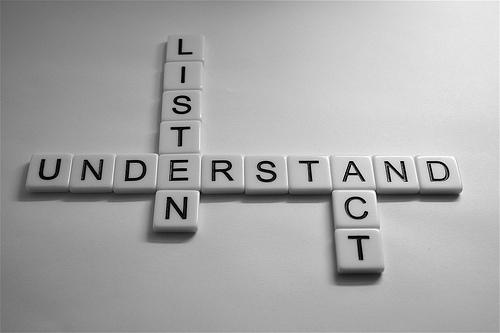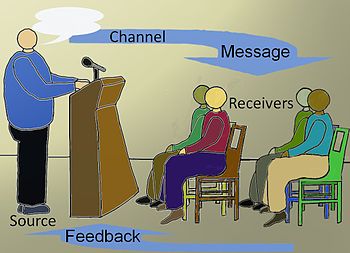When we think about ‘communication skills’ most of us are pretty self-centered. Need proof? Next time you see an ad for a book or a course that’s about ‘improving communication skills’ take a close look at the description. Unless it’s a really unusual course, you’ll see lots of tips about delivering your message. Enunciate clearly…. use attention-grabbing headlines…. create catchy phrases…. match and mirror your audience….
These are fine ideas but they focus only on one side of the communication – the ‘sending side’ of the equation. What about listening?
Parents put a premium on good communication. Most are highly motivated to be good listeners, especially about important and sensitive topics such as bullying or drugs in school. The problem is that somewhere between the ‘endless knock-knock joke’ and ‘will there be alcohol at the party’ there’s a breakdown. Parents tune out. Kids stop talking.
Little kids really do need to learn some of the skills and social norms around conversation… and, in all fairness, do you know ANYBODY who likes the “how was school today?” question. It sometimes feels forced, disinterested or even lazy – certainly not the way to invite a longer conversation.
Good questions invite engagement and discussion – but what makes a good question?
Parents of teens will easily answer “anything that can’t be answered with ‘yes,’ ‘no,’ or a grunt” and they would be right. Open-ended questions help. It takes a little work but it’s worthwhile to learn how to ask questions that start with “what” or “how.”
“What’s the most interesting thing that you saw today?”
“What about ______ captured your attention?”
“How do you think that they do that?”
“How did you show your generosity today?”
“How did that make you feel?”
“What did that make you think about?”
Would you like to share some favorites? What’s stopping you? We’d love to have your input — and it’s great practice .



